Articles
 [by Ken Hunt, London] The Dutch counter-culture poet, writer and painter Simon Vinkenoog died in Amsterdam on Saturday, 12 July 2009, a few days before his 81st birthday. Born on 18 July 1928 in Amsterdam, Vinkenoog was the child of a lone parent family raised in the De Pijp part of Amsterdam’s Oud-Zuid (Old South) district.
[by Ken Hunt, London] The Dutch counter-culture poet, writer and painter Simon Vinkenoog died in Amsterdam on Saturday, 12 July 2009, a few days before his 81st birthday. Born on 18 July 1928 in Amsterdam, Vinkenoog was the child of a lone parent family raised in the De Pijp part of Amsterdam’s Oud-Zuid (Old South) district.
7. 8. 2009 |
read more...
Ken Hunt’s month in music – the stuff in no particular order that either wouldn’t let go or wouldn’t go away.
31. 7. 2009 |
read more...
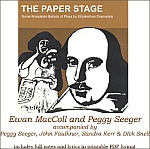 [by Ken Hunt, London] Forty years or so ago, Ewan MacColl and Peggy Seeger released their most recondite project, the two-volume Paper Stage. It was reconstructions of the first Elizabethan Age’s theatre for the second Elizabethan Age. The original peddlers of these more unauthorised than guerrilla playlets in song left few traces and fewer fingerprints. All that survived was the printed page. Theirs was street theatre, the equivalent of graffiti artist Banksy’s Mona Lisa with a rocket launcher, or that Banksy rat sawing a getaway hole to freedom through the pavement.
[by Ken Hunt, London] Forty years or so ago, Ewan MacColl and Peggy Seeger released their most recondite project, the two-volume Paper Stage. It was reconstructions of the first Elizabethan Age’s theatre for the second Elizabethan Age. The original peddlers of these more unauthorised than guerrilla playlets in song left few traces and fewer fingerprints. All that survived was the printed page. Theirs was street theatre, the equivalent of graffiti artist Banksy’s Mona Lisa with a rocket launcher, or that Banksy rat sawing a getaway hole to freedom through the pavement.
29. 7. 2009 |
read more...
 [by Ken Hunt, London] Say you woke up one morning and the smell wasn’t coffee but the stench of something having gone off. What would you do? It happened to Leonard Cohen while he was on retreat at the Mount Baldy Zen Center in southern California’s San Gabriel Mountains. With a sheaf of law suits behind him, Cohen’s remedy was to hit the road, drumming up new interest by touring and giving audiences what they wanted. He picked himself up, brushed himself down and started all over again – sensibly chronicling the process with the revenue-injecting CD and DVD Live in London from the O2 venue in London in July 2008.
[by Ken Hunt, London] Say you woke up one morning and the smell wasn’t coffee but the stench of something having gone off. What would you do? It happened to Leonard Cohen while he was on retreat at the Mount Baldy Zen Center in southern California’s San Gabriel Mountains. With a sheaf of law suits behind him, Cohen’s remedy was to hit the road, drumming up new interest by touring and giving audiences what they wanted. He picked himself up, brushed himself down and started all over again – sensibly chronicling the process with the revenue-injecting CD and DVD Live in London from the O2 venue in London in July 2008.
19. 7. 2009 |
read more...
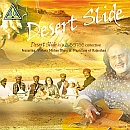 [by Ken Hunt, London] Even by repute, people who have never been to Rajasthan and only ever saw photographs or artwork, Rajasthan is popularly viewed as a region saturated with colour. In its Great Thar Desert, soil, sand and salt lakes offer a palette of yellows, browns and reds. In its deciduous woodlands dhok and dhak – the tree known as the ‘flame of the forest’ – provide the seasonal mosaics of the forest canopy and forest floor and then there is the vibrancy of bougainvillea everywhere whether on the highways or streets. In its street markets full of chillies, mangoes, bananas and spinach, Rajasthan offers an abundance of saturated colours – and watery contrasts. Then factor in whether through raga or folk dance or mela (festival) how musically Rajasthan is affected by what is all around when musicians play.
[by Ken Hunt, London] Even by repute, people who have never been to Rajasthan and only ever saw photographs or artwork, Rajasthan is popularly viewed as a region saturated with colour. In its Great Thar Desert, soil, sand and salt lakes offer a palette of yellows, browns and reds. In its deciduous woodlands dhok and dhak – the tree known as the ‘flame of the forest’ – provide the seasonal mosaics of the forest canopy and forest floor and then there is the vibrancy of bougainvillea everywhere whether on the highways or streets. In its street markets full of chillies, mangoes, bananas and spinach, Rajasthan offers an abundance of saturated colours – and watery contrasts. Then factor in whether through raga or folk dance or mela (festival) how musically Rajasthan is affected by what is all around when musicians play.
6. 7. 2009 |
read more...
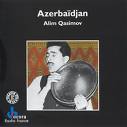 [by Ken Hunt, London] In 1998 Alim Qasimov appeared at Tanz&FolkFest Rudolstadt. He was pretty much an unknown quantity. His recordings were little known outside the Azerbaijani domestic market or France and Switzerland. Qasimov truly was a Francophone find. Queuing outside the Landestheater the German Liederdichter – poet-songwriter – Christof Stählin and I got to talking and he recommended Alim Qasimov’s concert at the town church in a way that brooked no dissent. Once again, I must credit Christof with one of the musical discoveries of my life.
[by Ken Hunt, London] In 1998 Alim Qasimov appeared at Tanz&FolkFest Rudolstadt. He was pretty much an unknown quantity. His recordings were little known outside the Azerbaijani domestic market or France and Switzerland. Qasimov truly was a Francophone find. Queuing outside the Landestheater the German Liederdichter – poet-songwriter – Christof Stählin and I got to talking and he recommended Alim Qasimov’s concert at the town church in a way that brooked no dissent. Once again, I must credit Christof with one of the musical discoveries of my life.
15. 6. 2009 |
read more...
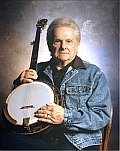 [by Phil Wilson, London] Dr. Ralph Stanley – as he’s proud to be called these days – isn’t someone you’d necessarily describe as ’82 years young’, but he’s still in great form. There was a precautionary chair on stage at the Barbican, but he only draped his jacket over it, and even for the band members’ solo numbers and the instrumentals he remained standing and merely stepped back to allow them the spotlight.
[by Phil Wilson, London] Dr. Ralph Stanley – as he’s proud to be called these days – isn’t someone you’d necessarily describe as ’82 years young’, but he’s still in great form. There was a precautionary chair on stage at the Barbican, but he only draped his jacket over it, and even for the band members’ solo numbers and the instrumentals he remained standing and merely stepped back to allow them the spotlight.
5. 6. 2009 |
read more...
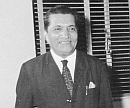 [by Ken Hunt, London] Whilst writing the essay about the history of Call of the Valley back in those days when the internet was in its infancy and before mobile phones, it took months to obtain the right phone number for G.N. Joshi – or one that worked. The way things sometimes go, I finally made direct contact only to learn that he had died days before.
[by Ken Hunt, London] Whilst writing the essay about the history of Call of the Valley back in those days when the internet was in its infancy and before mobile phones, it took months to obtain the right phone number for G.N. Joshi – or one that worked. The way things sometimes go, I finally made direct contact only to learn that he had died days before.
5. 6. 2009 |
read more...
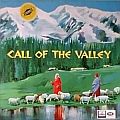 [by Ken Hunt, London] Key works that open doors to reveal unsuspected possibilities are fewer and farther between than press releases and other fictions would lead us to believe. On the basis that a little hyperbole goes a long way, glib judgements get bandied around with frightening frequency and lightning strike effect. For many people Call of the Valley opened up the skies, was a revelation. Its impact could be likened to revealing a new colour in the spectrum, for it was directly responsible for bringing Hindustani classical music – as Northern Indian classical music is known – to new audiences all around the globe. Its three soloists would go on to internationally acclaimed careers. But all that lay in the future. For countless listeners the first time they would hear the consummate musicianship of Shivkumar Sharma, Brijbushan Kabra and Hariprasad Chaurasia would be this record.
[by Ken Hunt, London] Key works that open doors to reveal unsuspected possibilities are fewer and farther between than press releases and other fictions would lead us to believe. On the basis that a little hyperbole goes a long way, glib judgements get bandied around with frightening frequency and lightning strike effect. For many people Call of the Valley opened up the skies, was a revelation. Its impact could be likened to revealing a new colour in the spectrum, for it was directly responsible for bringing Hindustani classical music – as Northern Indian classical music is known – to new audiences all around the globe. Its three soloists would go on to internationally acclaimed careers. But all that lay in the future. For countless listeners the first time they would hear the consummate musicianship of Shivkumar Sharma, Brijbushan Kabra and Hariprasad Chaurasia would be this record.
1. 6. 2009 |
read more...
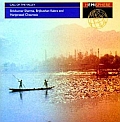 [by Ken Hunt after G.N. Joshi] Picture a hamlet, as G.N. Joshi wrote in the original sleeve notes to Call of the Valley, nestling in the shelter of a Kashmiri valley. The story begins as sunrise approaches. Guitar signals dawn’s arrival. Santoor, the very epitome of the Kashmiri soundscape, joins in to play the early morning râg Ahir Bhairav, the first movement of the suite.
[by Ken Hunt after G.N. Joshi] Picture a hamlet, as G.N. Joshi wrote in the original sleeve notes to Call of the Valley, nestling in the shelter of a Kashmiri valley. The story begins as sunrise approaches. Guitar signals dawn’s arrival. Santoor, the very epitome of the Kashmiri soundscape, joins in to play the early morning râg Ahir Bhairav, the first movement of the suite.
Swarmandal – a zither-like instrument – ripples usher in the second movement, Nat Bhairav. The day advances. The sun begins its climb with Joshi imagining Kashmir’s scenic splendour. Set to ektāl, tāl or taal meaning a rhythmic cycle, in this case one of 12 beats, the scene takes on colour and form.
1. 6. 2009 |
read more...
« Later articles
Older articles »
 [by Ken Hunt, London] The Dutch counter-culture poet, writer and painter Simon Vinkenoog died in Amsterdam on Saturday, 12 July 2009, a few days before his 81st birthday. Born on 18 July 1928 in Amsterdam, Vinkenoog was the child of a lone parent family raised in the De Pijp part of Amsterdam’s Oud-Zuid (Old South) district.
[by Ken Hunt, London] The Dutch counter-culture poet, writer and painter Simon Vinkenoog died in Amsterdam on Saturday, 12 July 2009, a few days before his 81st birthday. Born on 18 July 1928 in Amsterdam, Vinkenoog was the child of a lone parent family raised in the De Pijp part of Amsterdam’s Oud-Zuid (Old South) district. [by Ken Hunt, London] Forty years or so ago, Ewan MacColl and Peggy Seeger released their most recondite project, the two-volume Paper Stage. It was reconstructions of the first Elizabethan Age’s theatre for the second Elizabethan Age. The original peddlers of these more unauthorised than guerrilla playlets in song left few traces and fewer fingerprints. All that survived was the printed page. Theirs was street theatre, the equivalent of graffiti artist Banksy’s Mona Lisa with a rocket launcher, or that Banksy rat sawing a getaway hole to freedom through the pavement.
[by Ken Hunt, London] Forty years or so ago, Ewan MacColl and Peggy Seeger released their most recondite project, the two-volume Paper Stage. It was reconstructions of the first Elizabethan Age’s theatre for the second Elizabethan Age. The original peddlers of these more unauthorised than guerrilla playlets in song left few traces and fewer fingerprints. All that survived was the printed page. Theirs was street theatre, the equivalent of graffiti artist Banksy’s Mona Lisa with a rocket launcher, or that Banksy rat sawing a getaway hole to freedom through the pavement.  [by Ken Hunt, London] Say you woke up one morning and the smell wasn’t coffee but the stench of something having gone off. What would you do? It happened to Leonard Cohen while he was on retreat at the Mount Baldy Zen Center in southern California’s San Gabriel Mountains. With a sheaf of law suits behind him, Cohen’s remedy was to hit the road, drumming up new interest by touring and giving audiences what they wanted. He picked himself up, brushed himself down and started all over again – sensibly chronicling the process with the revenue-injecting CD and DVD Live in London from the O2 venue in London in July 2008.
[by Ken Hunt, London] Say you woke up one morning and the smell wasn’t coffee but the stench of something having gone off. What would you do? It happened to Leonard Cohen while he was on retreat at the Mount Baldy Zen Center in southern California’s San Gabriel Mountains. With a sheaf of law suits behind him, Cohen’s remedy was to hit the road, drumming up new interest by touring and giving audiences what they wanted. He picked himself up, brushed himself down and started all over again – sensibly chronicling the process with the revenue-injecting CD and DVD Live in London from the O2 venue in London in July 2008. [by Ken Hunt, London] Even by repute, people who have never been to Rajasthan and only ever saw photographs or artwork, Rajasthan is popularly viewed as a region saturated with colour. In its Great Thar Desert, soil, sand and salt lakes offer a palette of yellows, browns and reds. In its deciduous woodlands dhok and dhak – the tree known as the ‘flame of the forest’ – provide the seasonal mosaics of the forest canopy and forest floor and then there is the vibrancy of bougainvillea everywhere whether on the highways or streets. In its street markets full of chillies, mangoes, bananas and spinach, Rajasthan offers an abundance of saturated colours – and watery contrasts. Then factor in whether through raga or folk dance or mela (festival) how musically Rajasthan is affected by what is all around when musicians play.
[by Ken Hunt, London] Even by repute, people who have never been to Rajasthan and only ever saw photographs or artwork, Rajasthan is popularly viewed as a region saturated with colour. In its Great Thar Desert, soil, sand and salt lakes offer a palette of yellows, browns and reds. In its deciduous woodlands dhok and dhak – the tree known as the ‘flame of the forest’ – provide the seasonal mosaics of the forest canopy and forest floor and then there is the vibrancy of bougainvillea everywhere whether on the highways or streets. In its street markets full of chillies, mangoes, bananas and spinach, Rajasthan offers an abundance of saturated colours – and watery contrasts. Then factor in whether through raga or folk dance or mela (festival) how musically Rajasthan is affected by what is all around when musicians play. [by Ken Hunt, London] In 1998 Alim Qasimov appeared at Tanz&FolkFest Rudolstadt. He was pretty much an unknown quantity. His recordings were little known outside the Azerbaijani domestic market or France and Switzerland. Qasimov truly was a Francophone find. Queuing outside the Landestheater the German Liederdichter – poet-songwriter – Christof Stählin and I got to talking and he recommended Alim Qasimov’s concert at the town church in a way that brooked no dissent. Once again, I must credit Christof with one of the musical discoveries of my life.
[by Ken Hunt, London] In 1998 Alim Qasimov appeared at Tanz&FolkFest Rudolstadt. He was pretty much an unknown quantity. His recordings were little known outside the Azerbaijani domestic market or France and Switzerland. Qasimov truly was a Francophone find. Queuing outside the Landestheater the German Liederdichter – poet-songwriter – Christof Stählin and I got to talking and he recommended Alim Qasimov’s concert at the town church in a way that brooked no dissent. Once again, I must credit Christof with one of the musical discoveries of my life. [by Phil Wilson, London] Dr. Ralph Stanley – as he’s proud to be called these days – isn’t someone you’d necessarily describe as ’82 years young’, but he’s still in great form. There was a precautionary chair on stage at the Barbican, but he only draped his jacket over it, and even for the band members’ solo numbers and the instrumentals he remained standing and merely stepped back to allow them the spotlight.
[by Phil Wilson, London] Dr. Ralph Stanley – as he’s proud to be called these days – isn’t someone you’d necessarily describe as ’82 years young’, but he’s still in great form. There was a precautionary chair on stage at the Barbican, but he only draped his jacket over it, and even for the band members’ solo numbers and the instrumentals he remained standing and merely stepped back to allow them the spotlight. [by Ken Hunt, London] Whilst writing the essay about the history of Call of the Valley back in those days when the internet was in its infancy and before mobile phones, it took months to obtain the right phone number for G.N. Joshi – or one that worked. The way things sometimes go, I finally made direct contact only to learn that he had died days before.
[by Ken Hunt, London] Whilst writing the essay about the history of Call of the Valley back in those days when the internet was in its infancy and before mobile phones, it took months to obtain the right phone number for G.N. Joshi – or one that worked. The way things sometimes go, I finally made direct contact only to learn that he had died days before. [by Ken Hunt, London] Key works that open doors to reveal unsuspected possibilities are fewer and farther between than press releases and other fictions would lead us to believe. On the basis that a little hyperbole goes a long way, glib judgements get bandied around with frightening frequency and lightning strike effect. For many people Call of the Valley opened up the skies, was a revelation. Its impact could be likened to revealing a new colour in the spectrum, for it was directly responsible for bringing Hindustani classical music – as Northern Indian classical music is known – to new audiences all around the globe. Its three soloists would go on to internationally acclaimed careers. But all that lay in the future. For countless listeners the first time they would hear the consummate musicianship of Shivkumar Sharma, Brijbushan Kabra and Hariprasad Chaurasia would be this record.
[by Ken Hunt, London] Key works that open doors to reveal unsuspected possibilities are fewer and farther between than press releases and other fictions would lead us to believe. On the basis that a little hyperbole goes a long way, glib judgements get bandied around with frightening frequency and lightning strike effect. For many people Call of the Valley opened up the skies, was a revelation. Its impact could be likened to revealing a new colour in the spectrum, for it was directly responsible for bringing Hindustani classical music – as Northern Indian classical music is known – to new audiences all around the globe. Its three soloists would go on to internationally acclaimed careers. But all that lay in the future. For countless listeners the first time they would hear the consummate musicianship of Shivkumar Sharma, Brijbushan Kabra and Hariprasad Chaurasia would be this record. [by Ken Hunt after G.N. Joshi] Picture a hamlet, as G.N. Joshi wrote in the original sleeve notes to Call of the Valley, nestling in the shelter of a Kashmiri valley. The story begins as sunrise approaches. Guitar signals dawn’s arrival. Santoor, the very epitome of the Kashmiri soundscape, joins in to play the early morning râg Ahir Bhairav, the first movement of the suite.
[by Ken Hunt after G.N. Joshi] Picture a hamlet, as G.N. Joshi wrote in the original sleeve notes to Call of the Valley, nestling in the shelter of a Kashmiri valley. The story begins as sunrise approaches. Guitar signals dawn’s arrival. Santoor, the very epitome of the Kashmiri soundscape, joins in to play the early morning râg Ahir Bhairav, the first movement of the suite.